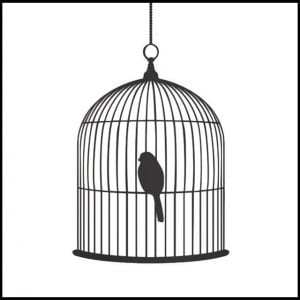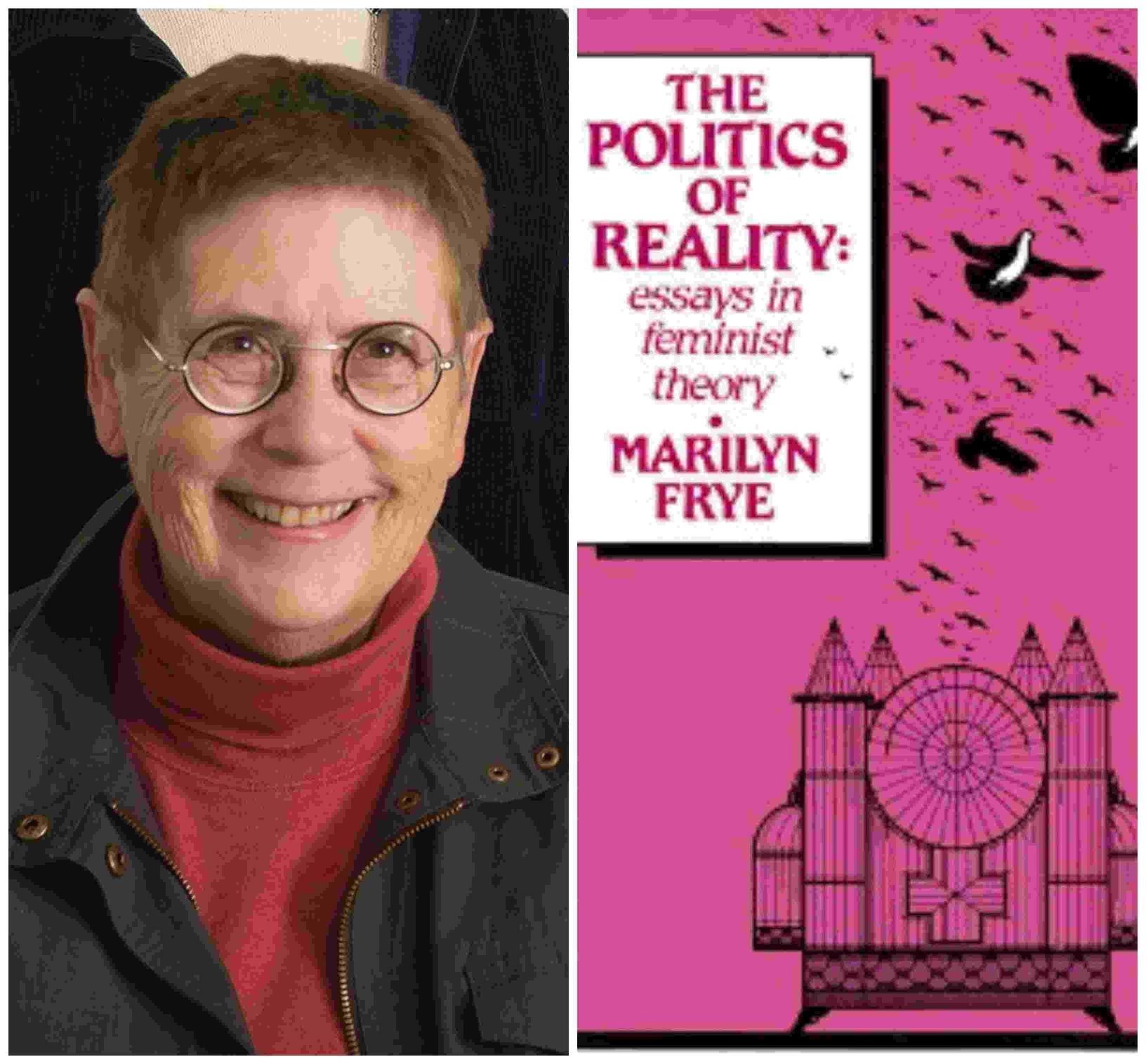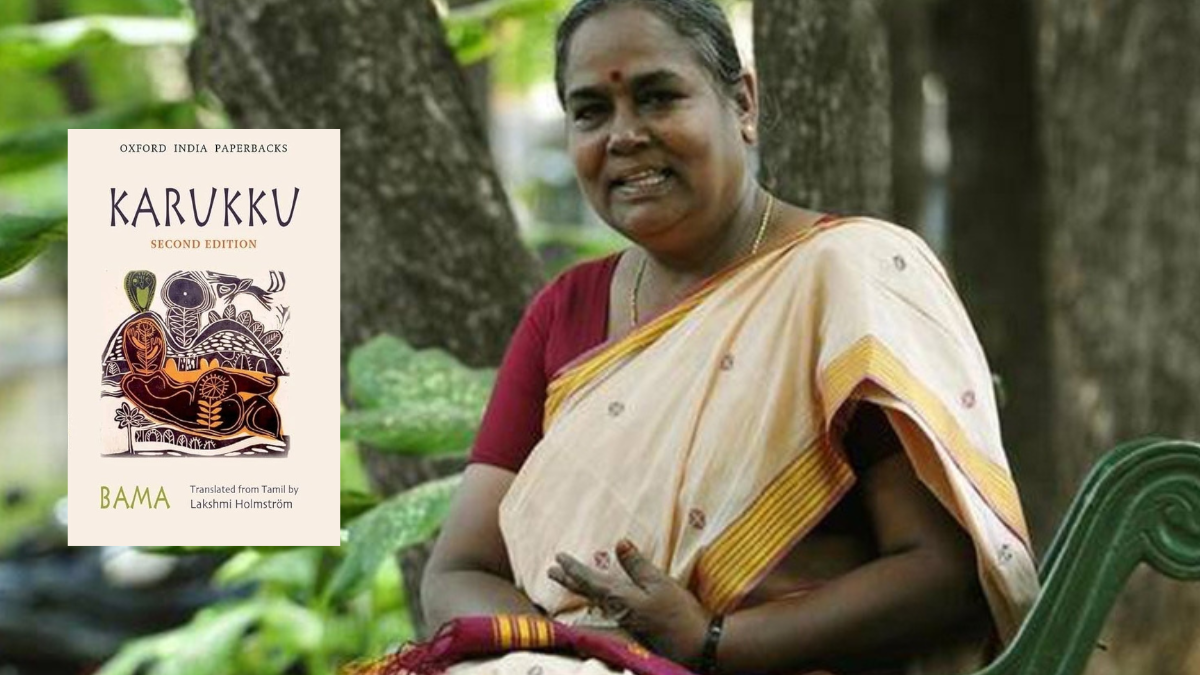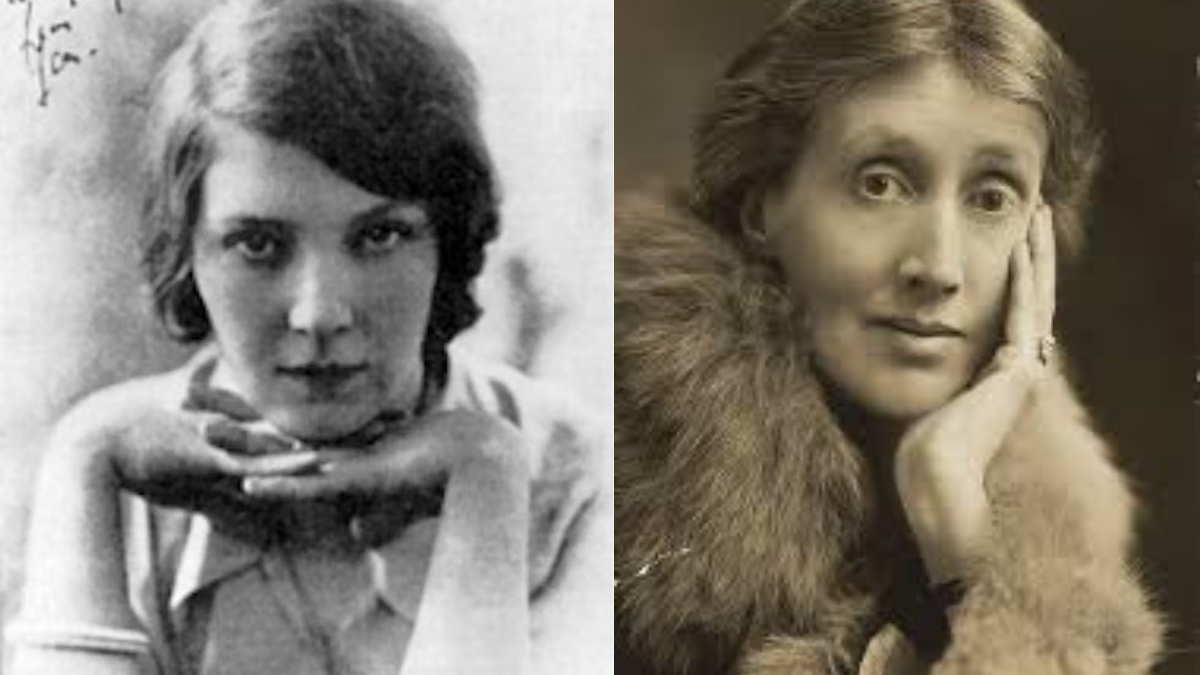I have often heard people claim that they don’t identify as feminists because they believe in “equality.” I am always perplexed by these statements. For example, recently Kareena Kapoor Khan claimed that, “I am not a feminist, I believe in equality.” I’ve often heard this statement from numerous women and men around me who hesitate to fully embrace the title of “feminist.” For them somehow, equality and feminism were antithetical rather than synonymous. This borderline men-inist argument stated that this heteropatriarchal system did not only disadvantage the woman but also them man who had to conform to a form of hypermasculinity in order to survive in this world. “Men are oppressed too” was the argument.
Also Read: If Kareena Kapoor Khan Says She’s Not A Feminist, Maybe She’s Not
As an individual who defines herself as a feminist, this argument is filled with flaws.This argument allows “oppression” to expand its definition and ironically include the oppressor as the oppressed, in turn invisibilising the functioning of the oppressive system. For me, feminism allows women to acknowledge and name their oppression, an act that transformed my life personally. To put it simply, it creates space to say that our society is built in a way that masculinity is favoured over femininity, putting everyone associated with femininity at a disadvantaged position. While men too face disadvantages because of the heteropatriarchal system, can we tag these disadvantages as “oppression”? Is it wrong if women unapologetically claim that men are not oppressed?
Marilyn Frye in her work “Oppression” helps answer these questions by explaining the concept of the “double bind.” Frye argues that women are essentially caught in a double bind, one of the most “ubiquitous features of the world as experienced by oppressed people” that men do not have to experience. Frye states that this double bind reduces the options in a situation to very few and each option guarantees a sort of penalty.
While men too face disadvantages because of the heteropatriarchal system, can we tag these disadvantages as “oppression”?
Frye cites the example of a common expectation asked of women – to look sexy, feminine or beautiful. This requires women to show skin, but not too much skin. If a woman wears revealing clothes she is often labelled a “slut” but if a woman covers herself up she can be called a “prude,” “ ugly,” or even “masculine.” Women experience such double binds not only on a small scale and at mundane levels but also on a larger, existential level where choosing an option that is not accepted by the patriarchal society could lead to fatal consequences. In the case of the example mentioned above, wearing short/revealing clothes is and could be used for grounds to justify sexual violence on women.
The Birdcage Analogy
 Women are forced to live in such a patriarchal society filled with double binds and Frye explains this restriction on women’s activity through the analogy of a birdcage. Marilyn Frye says that women’s oppression can be understood by looking at oppression like a birdcage within which women are trapped. If you look at just one wire of the birdcage you will fail to see all other wires that are also formed the cage and restricting movement. Further, if you go inspect every wire individually, one will still fail to see why the bird can’t escape. It is when the cage is looked at holistically will one see that it is impossible for a bird to truly escape the cage. Similarly, Frye argues that oppression, like the cage is meant to be seen holistically with all its structures intersecting and creating the cage. A view of oppression that views its elements individually, like the birdcage, will fail to show you the elements of oppression that force you to stay in the cage.
Women are forced to live in such a patriarchal society filled with double binds and Frye explains this restriction on women’s activity through the analogy of a birdcage. Marilyn Frye says that women’s oppression can be understood by looking at oppression like a birdcage within which women are trapped. If you look at just one wire of the birdcage you will fail to see all other wires that are also formed the cage and restricting movement. Further, if you go inspect every wire individually, one will still fail to see why the bird can’t escape. It is when the cage is looked at holistically will one see that it is impossible for a bird to truly escape the cage. Similarly, Frye argues that oppression, like the cage is meant to be seen holistically with all its structures intersecting and creating the cage. A view of oppression that views its elements individually, like the birdcage, will fail to show you the elements of oppression that force you to stay in the cage.
This cage of oppression is one that does not encompass men. Openly and unapologetically saying that men are not oppressed does not point towards the fact that feminism does not stand for equality but rather it aims to create equality by centring the oppressed. Frye states that saying men are not oppressed does not imply that men do not suffer or aren’t miserable but simply means that they are not oppressed through structures that are designed specifically to limit their movement. They do not have to navigate a world with the double bind. Men in revealing clothes or men covered up, what they wear is none of society’s business. This same standard is not applied to women.
Further, one has to look at who these structures benefit. Marilyn Frye says that the argument that men are oppressed is often supported by the fact that men are unable to cry or express emotions. While this is true and while one can argue that this does affect the lives of men, one has to put into perspective that the restrictions men experience, like not being able to express emotion do not benefit anyone whereas restrictions put on women help shape the masculinity of a man. For example, an overly emotional woman helps create the emotionally stoic, strong, macho man by providing an antithesis to him. Femininity comes to be defined through masculinity while masculinity functions alone.
A view of oppression that views its elements individually, like the birdcage, will fail to show you the elements of oppression that force you to stay in the cage.
The word “oppressed” means “something caught between or among forces and barriers which are so related to each other that jointly they restrain, restrict, or prevent the thing’s motion or mobility.” Women in this heterosexist patriarchal world are restrained and restricted to prevent their mobility through institutional systems that do not affect men in the same way. Women are forced to conform to patriarchal standards of gender in order to survive in this world. Feminism then, is a fight for equality that takes place by centring the voices of the oppressed. It is a recognition of the institutional disadvantages faced by women. It is the visibilisation of the patriarchy that actively works to invisibilise itself in order to allow the oppression of women. By claiming feminism, by allowing oneself to freely claim one’s oppression and reject the notion of “the oppressed oppressor,” one can visibilize the patriarchal system, taking away power from it.
Also Read: Why Call It Feminism, As Opposed To Humanism Or Egalitarianism?
About the author(s)
Undergraduate studying Religion and Gender, activist, feminist. Gender pronouns - she/her/hers





“Feminism and equality are synonymous”. Pretty harmless statement, right?
You don’t say what you are by saying what you aim at. A better statement would have been: “Feminism aims at equality in different ways” (although I don’t completely agree to that either). When you say that both are synonymous, you are not providing space for opposition or criticism, if someone doesn’t agree then s/he is lumped into the realm of supporters of inequality. And you wash your hands clean. The most basic freedom right, the right to disagree, the holy grail of our civilisation I believe it to be, is trampled by this seemingly innocent statement, the right which the left fought so hard to keep intact in our society.
But of course, how can feminism mean anything but equality, after all it is what it is moving at? That’s UP TO ME TO DECIDE for myself and you better respect that (the right to disagree, not me particularly). Forcing it down anyone’s throat is narcissistic and shows blatant disrespect for the person’s right to choose or see for him/herself. After all, there wasn’t no divine intervention that started and keeps check on the path that feminism takes. Humans did it and thus, it is prone to have flaws (for me, far too many to call myself a feminist). An example: One of the leaders of #MeToo movement, Asia Argento, was accused of sexual assault few weeks ago, something she was apparently fighting against. (People are assholes, in general, that’s how I go about it. How does someone wrap his/her head around news like: UN peacekeepers ran a child sex ring for 10 years, children already devastated by wars and deaths of closed-ones and some contracted HIVAIDS; the head monk of a Buddhist meditation centre in Bihar’s Bodh Gaya, where Lord Budhha was enlightened, arrested on the charges of sexually abusing more than a dozen boys). Also right intentions do NOT guarantee right consequences at all. I don’t care what the intentions of feminism are, I care about the way it go about reaching them and the places it reach. And I will come back to my problems with them in a moment.
Clearly the writer doesn’t see all that, she is too busy getting perplexed by the questions and wonder why people aren’t seeing the obvious. And she goes on to ask us to look at the bigger picture, to look at all the bars of the bird cage! Laughable. No matter what definition of oppression she chooses and where she chooses it from, the fact that PEOPLE are oppressed in the society is undeniable. It’s oppression when your land is taken from you because a new dam is going to be made in your area and you fight for 20 years to get new land somehow for yourself from the government. Doesn’t matter who you are. It is oppression when your brother or sister dies of doing a government job but the govt. doesn’t support you financially for years because his/her shift ended 5 minutes before the death. It’s oppression, doesn’t matter who you are. The list is endless.
That’s what happens when an ideology is pushed forward without check and without criticism. Writer sticks to the narrative pushed forward in feminism and in a way, the heart of feminism, that it is the men, the oppressor, the creator of this patriarchal society that has rigged the game and every aspect of it is to benefit the men at the expense of women. How do you reach at this conclusion? In the context of this article, these words are nothing but result of a young impressionable mind not thinking critically; there’s no substance here. But of course, it all feels so right, it makes sense, what can be closer to truth than this? I have done gender studies in college, I too know how it feels. If you are willing to cherry pick, stretch the truth a bit, and suppress counter-evidence you can easily make it seem like women are the have-nots in our society (-Christina Hoff Sommers). That’s the thing, if you are not skeptical, ideologies will possess you and not the other way around, as Carl Jung once said. Poviding space for counter-arguments will help the cause itself (and I’m not asking it from anyone, it is my fundamental right to have it). Here’s something to think about: If it’s the way you say it is, why is it that many European states were ruled by queens? Why is it that most of the deaths occured doing the dirty, dangerous work of society are incurred by men?
Now coming back to my problems with how feminism works:
> One of the most basic, for the lack of a better word, axioms of feminist theory is that sex and gender have no relation whatsoever. Here’s the salty part: it’s, medically, a false statement, medical literature says that, not just me. But that’s not the point though. How can I believe that something will go right if it’s foundations are flawed at the end of the day.
> Feminist theory, if we talk about the academia, is an echo-chamber. In academics, people publish their research and others are first critical of it, then verify the research themselves. That leads to a healthy structure which makes sure correct studies go up. But in gender studies, I haven’t seen that.
> At the base of feminism and behind the facade of equal opportunity to all and the pretty celebrities supporting it, if a person reads the theories such as Butler’s or like the one saying men is the oppressor and women is the oppressed and which are at the heart of feminism, it strikes me more as a radical leftist agenda and when I see how critical commentaries of such complex and important issues are deemed sexist or homophobic or racist rather casually and how damn sure they are that they are right that they directly disrespect people’s right to see for themselves and how mindlessly people are falling prey to the radicalisation (like this article), it makes me skeptical of attaching myself with it.
Lastly, needless to say, I too want equality for women, equal opportunities for all, but if you and I are going the same place, it is I who will see (for myself) whether your car is up to the task or not, whether you as a driver are up to the mark or not and whether I want to board your car or not. It’s MY decision. And you better respect that, the right, not me particularlycase the. And according to me, seeing the car which feminism is today, I’d rather walk alone.
PS: I am a student, I am 20 and I’m no alt-right. I want healthy discourse between different, opposing thoughts and I don’t want radicalisation or extremism. If the fundamental right to disagree is threatened, if you don’t have the choice to even disagree with something, then know that something is going wrong with the society.
Well said and considered.
She tried to use a fallacy of monopolization of ideas and vast generalizations to make this “valid” omg ?